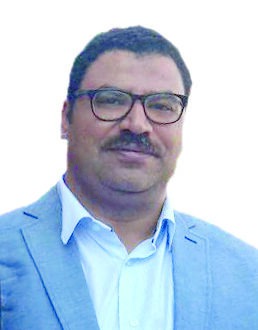The UN Human Rights Council now has an action plan on disinformation as the Russia-Ukraine conflict grinds on.
The coronavirus pandemic was fertile ground for false reporting, but the UN took action only when Ukraine requested a resolution.
Sponsored by Ukraine, Japan, Latvia, Lithuania, Poland, the UK, and the US, the draft resolution was presented at the Geneva forum to induce governments to combat false narratives.
The resolution says fake news has “increasing and far-reaching negative impact on the enjoyment and realisation of human rights of the deliberate creation and dissemination of false or manipulated information intended to deceive and mislead audiences, either to cause harm or for personal, political or financial gain”.
Fake news has been around for a long time. In ancient Rome, Emperor Augustus (27 BC-14 AD) in a ‘fake news’ war against Mark Anthony claimed that the latter had no respect for traditional Roman values and was unfit to hold office because he was a drunkard. The media upon which Augustus relied were poetry and slogans impressed on coins.
Print made the job of spreading fake news easier to sway public opinion and demonise the enemy. Throughout history, truth is always the first casualty of war, to paraphrase Samuel Johnson. Disinformation and propaganda appear long before the first shot is fired.
The job is even easier, thanks to digitisation and social media. Incorrect information can sweep like wildfire on the little screens long before that data can be challenged and removed.
‘Fake news’ became Collins Dictionary’s word of the year in 2017 and it has stayed in the headlines ever since. It came to the fore in the early months of the Covid-19 pandemic, spreading news about unscientific remedies and anti-vaccination movements gaining a huge following online.
The problem has also surfaced in the Ukrainian crisis and affected the International Committee of the Red Cross (ICRC), which has said that its lifesaving work there has been undermined by a “deliberate and targeted campaign of misinformation” aimed at destroying the relationship of trust to operate independently in war zones.
It is no wonder how fake news becomes entrenched in politically divided societies, where users seeking out and accept information compatible with their biases.
According to media experts, fake news has the negative effect of delegitimising real news. It decreases the amount of true information available, reduces consumers’ trust in authentic media, and adds a burden to fact-checkers to authenticate the vast amount of content online.
While some experts see that one way to protect oneself from fake news is to cultivate a critical attitude and engage in the safe use of social media, which can prove a failure with the emergence of deep fakers and in politically divided communities where even people with a critical minds are ready to believe any news that supports their view.
Hence the argument about the role that governments should play in this regard. It was the role that was emphasised by the UN Human Rights Council action plan. And although the council’s decisions are not legally binding, they carry the weight of authority to promote and safeguard human rights and provide an umbrella for more governmental action to neutralise the spread of fake news.






Discussion about this post